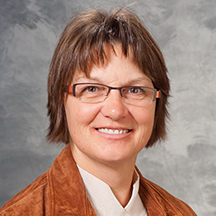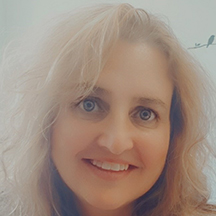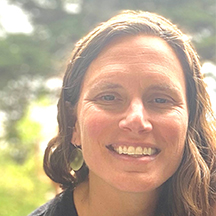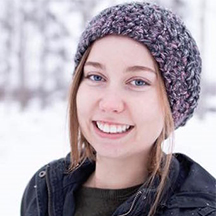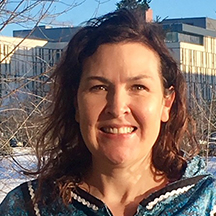New to Public Health-Cohort 4: Session 8-Access to and Linkage to Clinical Care
Overview
The New to Public Health Residency Program is an innovative development program designed to build confidence and competency for professionals who are new to public health.
The program is built upon the Foundational Public Health Services Model and develops enhanced knowledge and skills within the foundational areas and capabilities that are essential to public health practice.
The residency program includes an evidence-based practice project, peer networking, mentoring, facilitated reflection and journaling, simulation, and case studies to support the new resident as they transition to practice; while inspiring collaborative, interdisciplinary relationships to promote and protect health at a population level.
Statement of Need and Purpose
The residency program is designed to provide new public health professionals the foundational capabilities that are essential to public health practice. Overarching residency curriculum focuses on leadership, professional development, role-specific formation and competency. A residency program bridges the workforce by integrating the knowledge of experienced public health professionals and the fresh ideas of new staff to positively affect population health.
Integration of public health professionals from across jurisdictions allows the new public health professional to understand how diversity in the workforce strengthens essential services across city and county lines, and allows for enhanced networking and future collaboration.
Residency programs supplement state and local orientation programs and build upon department-specific policy, procedures, and tasks, to allow the resident to see a fuller picture of the field of public health.
This contemporary program utilizes a comprehensive practice model that supplements existing knowledge of staff and supports the synthesis of new ideas. The program promotes standardized tools for the participant to customize based on their individual practice.
Target Audience
This residency program is designed to meet the needs of nurses, social workers, sanitarians, health educators, and other public health professionals that are new to their roles.
Elements of Competence
This continuing education (CE) activity is designed to improve learner competence, and focuses on the American Board of Medical Specialties’ areas of interpersonal communication skills, professionalism and systems-based practice, the Institute of Medicine area of employing evidence-based practice, applying quality improvement, and utilizing information, and the Interprofessional and Nursing areas of values/ethics, roles/responsibilities and interprofessional communication.
Global Learning Objectives
By the end of the residency program, the new public health professional as a member of the interprofessional healthcare team will:
- Apply learned concepts from the Foundational Public Health Services’ model to their public health professional practice.
- Increase knowledge, skills, and confidence for competent public health practice.
- Access tools and resources applicable to public health practice.
- Apply health equity and social justice concepts to public health practice.
- Demonstrate enhanced cultural competency knowledge and skills in their individual practice.
- Research, plan, and present a quality improvement or evidence-based practice project within their local health department or community.
Session Learning Objectives
By the end of this session, the new public health professional as a member of the interprofessional healthcare team will:
- Detail how public health provides timely, statewide, and locally relevant and accurate information to the health care system and community on access and linkage to clinical care (including behavioral health), healthcare system access, quality, and cost.
- Locate what organizations inspect and license healthcare facilities, and license, monitors, and discipline healthcare providers, where applicable.
- Identify healthcare partners and competencies and describe how to develop prioritized plans for increasing access to health homes and quality health care in addition to seek funding for high priority policy initiatives, in concert with national and statewide groups and local providers of health care.
- Recognize how to coordinate and integrate categorically-funded clinical health care.
- Explain how public health convenes across governmental agencies, such as departments of transportation, aging, substance abuse/mental health, education, planning and development, or others, to promote health, prevent disease, and protect residents of the health department's geopolitical jurisdiction.
Successful Completion
Residents will view lectures, panel discussions, participate in cased-based and small-group discussions, participation in simulation and skill-based training, and participate in simulation, skill-based training, and gaming activities over a 12 month period of time.
The residency program also includes an evidence-based practice project, peer networking, mentoring, facilitated reflection, journaling to support the new resident as they transition to practice while inspiring collaborative, interdisciplinary relationships to promote and protect health at a population level.
SESSION SECTIONS |
|---|
| Session 8: Pre-Test |
| Health Care Coverage and Access to Care |
| Scavenger Hunt |
| Rural Health |
| Substance Use Disorders & Mental Health |
| Oral Health |
| Transportation |
| Aging |
| American Indian/Alaska Native Health |
| Discussion |
| Reflection |
| Discussion Post Check In |
| Session 8: Post-Test |
| Session 8: Evaluation |
| References |
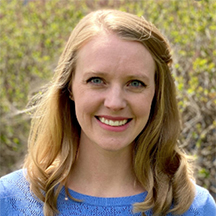 | Julianna ManskeNew to Public Health Residency Program FacilitatorJulianna Manske is the is facilitator and cofounder of the New to Public Health Residency Program and is employed with the University-Wisconsin Madison School of Nursing. Julianna spearheaded the workgroup in 2016 that developed and implemented the Southeastern Wisconsin Public Health Nurse Residency Program. This program, which ran from 2017-2020, served as a foundation to build the New to Public Health Residency Program, which supports public health professionals in their first year of employment at a local, regional, tribal, or state health department. Julianna serves as a co-chair on the Association of Public Health Nurses’ Education and Professional Development subcommittee. Julianna graduated from Concordia University in 2014 with a Master of Science in Nursing Education, and Carroll University in 2009 with a Bachelor of Science in Nursing. Julianna is passionate about workforce development and she is grateful to work with an incredible team developing the New to Public Health Residency Program and collaborating with public health leaders across the country. |
 | Hannah HayesNew to Public Health Residency Program Facilitator and Project ManagerHannah Hayes is the New to Public Health project manager, facilitator, and co-developer of the New to Public Health Residency Program. In 2018 Hannah completed her Master of Public Health (MPH) at the University of Wisconsin-Madison. During this time, Hannah partnered with the Southeastern Wisconsin Public Health Nurse Residency Program, where she assisted in the co-development of a toolkit for the dissemination and implementation of the residency program, which served as the foundation for the New to Public Health Residency Program. Hannah is currently employed by the University of Wisconsin-Madison School of Nursing as the Project Manager of the New to Public Health Project. Hannah graduated with her Bachelor of Science in Nursing in 2016. Hannah has experience in family practice & forensics, postpartum, and public health nursing in addition to serving as a public health clinical instructor. Hannah is passionate about social justice, empowering new professionals, and advancing the public health profession. |
| Barbara KingDr. King’s research is dedicated to creating sustainable and scalable practice change to promote patient safety for hospitalized older adults. Her efforts include identifying systemic barriers that prevent nurses from delivering the best care to older patients and developing realistic solutions that enable healthcare systems to remove or overcome those barriers. Her experience as a geriatric nurse practitioner has provided her with a unique and valuable perspective as a researcher, teacher and mentor. Her work to optimize nursing care of hospitalized older adults was recognized with a 2017 John A. Hartford Foundation Award. |
 | Megan Zuelsdorff, PhDDr. Zuelsdorff is an epidemiologist studying social-biological pathways and mechanisms that underlie cognitive health disparities in later life. She leads the Stress and Resilience in Dementia (STRIDE) study, focused on clarifying stress-related physiological mechanisms that link life course adversity to brain aging and cognitive declines in older populations. Her work prioritizes research and action that improves inclusion of underrepresented communities in cognitive aging studies through accessible design, ongoing responsiveness to community stakeholders, and sustained service. Dr. Zuelsdorff’s interdisciplinary research program is centered on understanding community-specific dementia risk factors, as well as personal, community, and policy-based resources that can reduce risk burden. |
 | Tracy Schroepfer, PhD, MSW, MADr. Schroepfer is a professor at the University of Wisconsin-Madison School of Social Work. She is a recipient of the Hartford Geriatric Social Work Faculty Scholar Award, and serves on several national aging-focused boards including the Association for Gerontology Education in Social Work and the NQF Geriatric and Palliative Care Standing Committee. Dr. Schroepfer’s research focuses on improving the care provided to elders who are seriously or terminally ill by determining the best strategies for meeting their psychosocial, cultural and spiritual needs. Her research is informed by her former practice as a hospice social worker. |
 | Sarah HarveySarah Harvey is a Mobility Manager at Eras Senior Network in Waukesha, Wisconsin. In this supportive role, she assists the elderly and adults with disabilities with their unique transportation needs. Sarah works to continuously improve the transportation infrastructure within her county through efforts of coordination and partnership building. Sarah serves as Secretary on the Board of Directors for the Wisconsin Association of Mobility Managers and holds a BA in Communications from the University of Wisconsin - Milwaukee. |
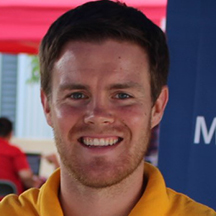 | Christopher FoxChris Fox is a certified Mobility Manager with Milwaukee County Transit System (MCTS.) He earned a bachelor’s degree from the University of Wisconsin-Milwaukee in Urban Geography with a certificate in Urban Planning and a focus in Transportation. Chris leads a team that uses creative solutions to remove barriers to transportation by providing Travel Training and Community Outreach activities for seniors and people with disabilities throughout Milwaukee County. In addition, the team has created an ADA Sensitivity Training program for bus operators that has received national recognition and has served as a model for operator ADA training in several cities. |
| Claire M. OpsteenClaire Opsteen received her Associate’s Degree in Dental Hygiene from Northeast Wisconsin Technical College in 2015. She is currently employed with the City of Menasha Health Department as a Public Health Registered Dental Hygienist. Prior to receiving her Dental Hygiene degree, she worked as an orthodontic assistant for 26 years. Claire is dedicated to making a positive impact in the community through provision of dental hygiene services within the Menasha school district, oral health education in classrooms and at community events and assisting with referrals for treatment. |
| Annette ReardenAnnette Rearden lives in the mountain community of Bear Valley just outside Anchorage, Alaska quietly situated amongst the ravens and bears. She is a daughter, sister, aunt, wife, mother, dog owner, gardener, reader, and outdoor adventurer. Annette hails from Michigan originally, having graduated from Marquette University with a BSN in nursing followed by a Masters in Nursing Education from University of Alaska, Anchorage. Alaska has been home for over 20 years where she is fortunate to teach nursing at Alaska Pacific University. |
| Misty McNellisMisty McNellis is currently working as a Health Program Associate for the State of Alaska Department of Health and Social Services where she assists with the creation of staff development trainings. She has a B.S. in Biological Sciences and M.Ed. in Secondary Education. |
| Karla WeiseKarla Weise is of the Yupik and Tsimshian tribes, and an enrolled member of the Metlakatla Indian Community. She earned a Master’s of Public Health degree in Public Health Practice and a Bachelor of Science degree in Nursing Science both from the University of Alaska, and also a Bachelor of Science degree in Exercise and Sport Science from Oregon State University. She has worked in various capacities within the Alaska Tribal Health System for over twenty years, and currently serves as an Improvement Facilitator for the Alaska Native Tribal Health Consortium in Anchorage, Alaska. She is dedicated to public health service for all people and currently serves as a Commissioned Corps officer, and prioritizes advocating for health equity for Alaska Native and American Indian people through committee involvement such as the State of Alaska Maternal and Child Death Review Committee and Alaska Public Health Association Board of Directors. |
Acknowledgements
- Susan Zahner
- Madeline Kornbeck
PLANNING COMMITTEE MEMBERS
| Hannah Hayes, MPH, RN University of Wisconsin-Madison, School of Nursing | Julianna Manske, MSN, RN, OCN University of Wisconsin-Madison, School of Nursing | Susan Zahner, DrPH, RN, FAAN University of Wisconsin-Madison, School of Nursing |
| Deborah Heim, PhD, MS, MN, BSN Public Health Nurse Consultant (PHNC) Wisconsin Division of Public Health Office of Policy and Practice Alignment (OPPA) for the SE region | Marta McMillion, MPH, MS, CHES Association of State and Territorial Health Officials (ASTHO) | |
| Ellen Henry, BS, CHESN City of Franklin Health Department | Ajay Sethi, PhD, MHS UW-Madison School of Medicine and Public Health |
CONTENT REVIEWERS
| Angela Acker University of Wisconsin-Madison, Populations Health Institute | Michael Jaeb University of Wisconsin-Madison, School of Public Health |
| Paula Bizot University of Wisconsin-Madison, School of Nursing | Abra Vigna University of Wisconsin-Madison, Populations Health Institute |
POLICY ON DISCLOSURE
It is the policy of the University of Wisconsin–Madison Interprofessional Continuing Education Partnership (ICEP) to identify, mitigate and disclose all relevant financial relationships with ineligible companies* held by the speakers/presenters, authors, planners, and other persons who may influence content of this accredited continuing education (CE). In addition, speakers, presenters and authors must disclose any planned discussion of unlabeled/unapproved uses of drugs or devices during their presentation.
For this accredited continuing education activity all relevant financial relationships have been mitigated and detailed disclosures are listed below.
*Ineligible companies are those whose primary business is producing, marketing, selling, re-selling, or distributing healthcare products used by or on, patients.
The ACCME does not consider providers of clinical services directly to patients to be ineligible companies.
The University of Wisconsin provides equal opportunities in employment and programming, including Title IX requirements. The University of Wisconsin fully complies with the legal requirements of the ADA and the rules and regulations thereof. If any participant in this educational activity is in need of accommodations, please contact [email protected].
Cohort-4 Disclosures
Accreditation Statement
 | In support of improving patient care, the University of Wisconsin–Madison ICEP is jointly accredited by the Accreditation Council for Continuing Medical Education (ACCME), the Accreditation Council for Pharmacy Education (ACPE), and the American Nurses Credentialing Center (ANCC) to provide continuing education for the healthcare team. |
Credit Designation Statements
American Nurses Credentialing Center (ANCC)
The University of Wisconsin–Madison ICEP designates this Enduring Material for a maximum of 7.50 ANCC contact hours.
Continuing Education Units (CEUs)
The University of Wisconsin–Madison ICEP, as a member of the University Professional & Continuing Education Association (UPCEA), authorizes this program for .750 CEUs or 7.50 hours
Certified Health Education Specialists (CHES) and/or Master Certified Health Education Specialists (MCHES)
Sponsored by University of Wisconsin–Madison ICEP, a designated provider of continuing education contact hours (CECH) in health education by the National Commission for Health Education Credentialing, Inc. This program is designated for Certified Health Education Specialists (CHES) and/or Master Certified Health Education Specialists (MCHES) to receive up to 7.50 total Category I continuing education contact hours. Maximum advanced-level CECH available are 1. Continuing Competency credits available are 7.50.
Total contact hours: 7.50
Entry-level contact hours: 6.50
Advanced-level contact hours: 1.0
Available Credit
- 7.50 ANCC Contact Hours
- 7.50 CECH Approved Credits
- 7.50 Entry-level Continuing Competency credits
- 1.00 Advanced-level credits
- 6.50 Entry-level credits
- 7.50 University of Wisconsin–Madison Continuing Education Hours

 Facebook
Facebook X
X LinkedIn
LinkedIn Forward
Forward